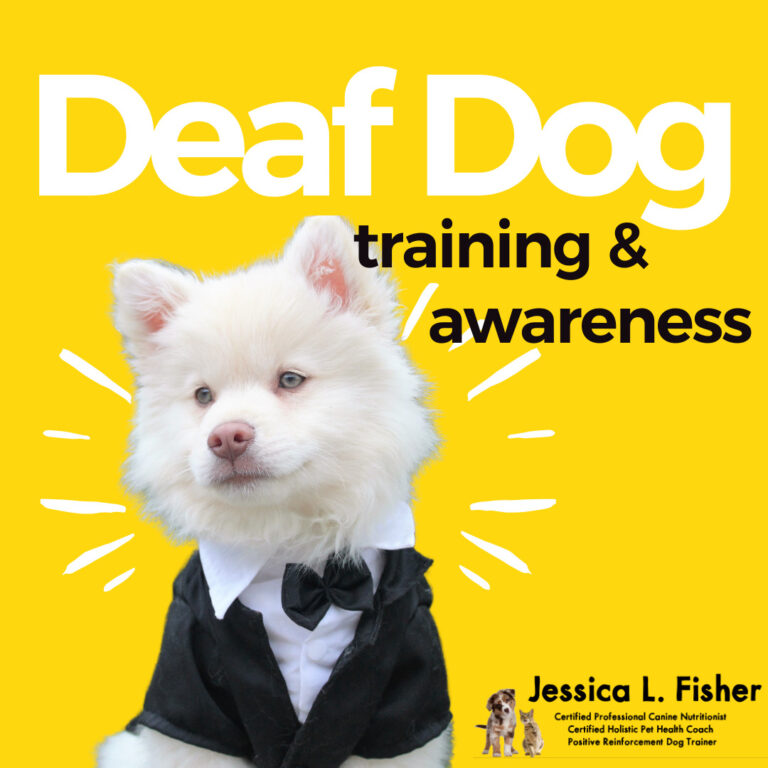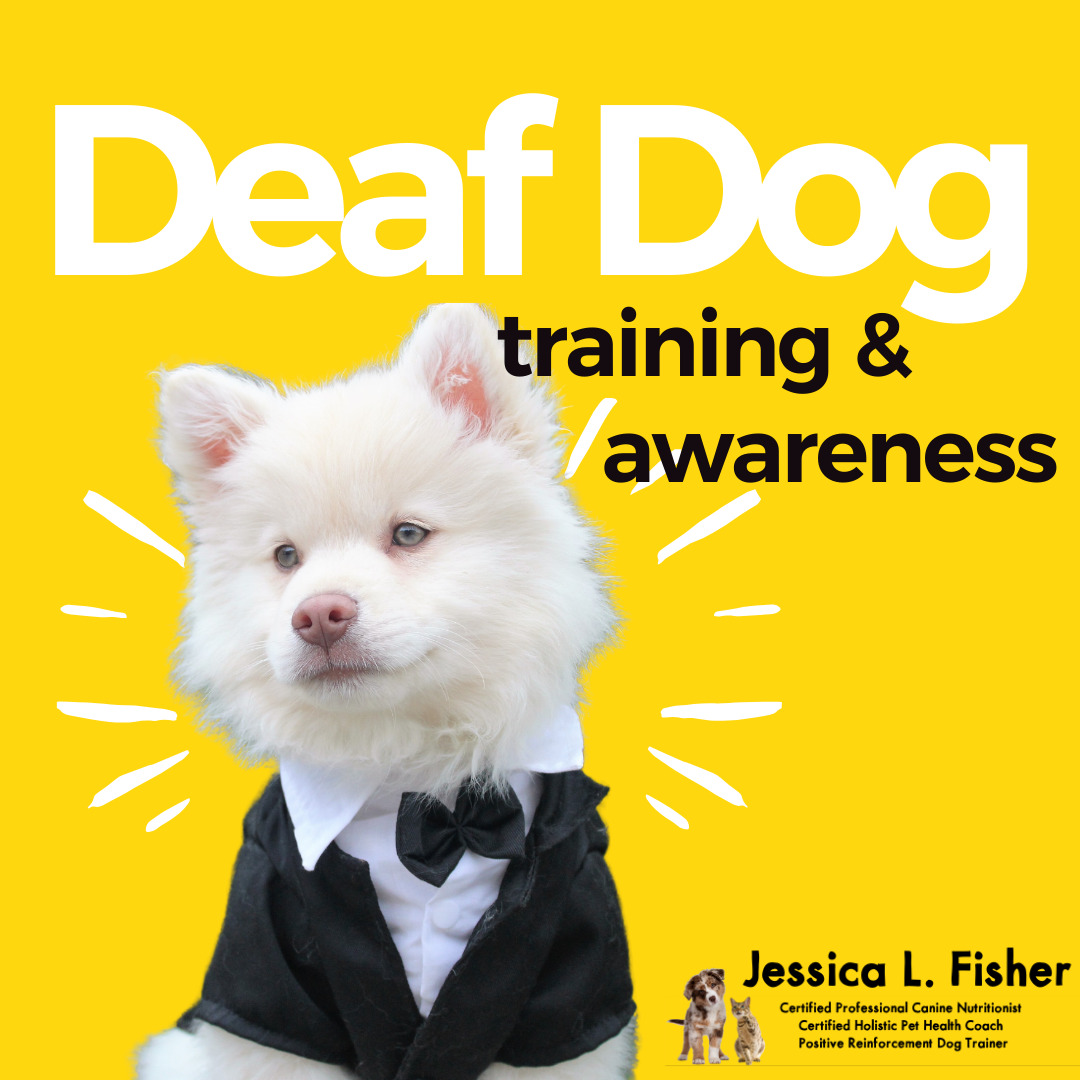The first dog I ever adopted on my own as an adult was deaf. Her name was Claire and she was my heart dog. I didn’t know she was deaf when I adopted her, but over time it became more apparent. She was pulled from a hoarder’s house with at least 12 other dogs. She gave birth at the shelter and none of her puppies survived. When I adopted her, she had a mouth full of rotting teeth and a mammary gland tumor that was quite larger for her small stature.
It was also very evident that she had been abused. We were warned about that, but when I tell you that she literally took over 2 years to warm up to my husband, I’m not kidding. She was terrified of men and especially of feet.
After getting all of her medical needs met and working with her on counter conditioning for men – and yes, even feet – we saw her personality bloom! And we began noticing more and more that noises didn’t make her ears move. She was my shadow, so I never really had to call her, so it was more the other noises that made us aware. And waking up, Oh boy, nothing could wake her up – except yummy food smells! (And sometimes my smell – I’m not smelly, but you know what I mean!)
So I began incorporating hand gestures in everything I did with the dogs (we had 2 – Gracie and Claire).
I’m surprised at myself, I only have 1 video on YouTube about working with deaf dogs. It’s on bite inhibition. Watch the video on deaf dog bit inhibition here.
What could cause a dog to go deaf?
If you’ve ever had the pleasure of caring for your dog during their senior years, it’s possible that you have already encountered a deaf or hearing-impaired dog. Sometimes losing hearing is a natural part of growing old. Other times it could be due to genetics as we can sometimes see in white-coated and blue-eyed dogs. Then we have the trauma component. Chromic ear infections, tumors, and head injuries are some of the traumas that could lead to loss of hearing.
According to the Adored Beast blog, drug toxicity can also cause deafness in dogs. While not surprising, this was news to me. In fact, the blog states that two of the main drugs used to treat ear infections in dogs can cause deafness. Yet another reason to do your research and always weigh the risk versus reward for everything you give to your pets.
From the blog: “Common veterinary drugs that can cause ototoxicity:
- Otomax Otic Ointment – used for the treatment of canine acute and chronic otitis externa associated with yeast (Malassezia pachydermatis) and/or bacteria susceptible to gentamicin.
- Gentamicin – Otic Gentamicin (brand names: Gentocin®, Genoptic®, Gentak®) is an aminoglycoside antibiotic for treating certain bacterial ear infections.
- Mometamax, GenOne – antibiotic with corticosteriod
- Aminoglycoside antibiotics – streptomycin, neomycin
- Antineoplastics – cisplatin, carboplatin
- Diuretics – ethacrynic acid, furosemide
- Analgesics, antipyretics – salicylates
- Polypeptide antibiotics – viomycin, vancomycin
- Macrolide antibiotics – erythromycin
Scientific studies show a link between all of these drugs and deafness!”
Can you protect your dog from going deaf?
Yes and no. As I said before, sometimes it’s just part of growing old and there are some dogs who are born deaf. As for environmental factors that can lead to hearing impairment and or deafness, yes, you can do something about it.
Most of the suggestions you’ll find for this revolve around keeping your dog protected from loud and sudden noises. These include loud TV and radio, machinery, fireworks, musical instruments, screaming children, etc. Your dog should always have a safe space to go where the noise level is low.
There are some other ways to help your dog as well, such as feeding a fresh food diet, choosing holistic alternatives for medicine when appropriate and possible, and supplementing their diet for vitality.
Training a Deaf Dog
I mentioned a video I have up on YouTube earlier in the post, it’s the only one I have up on my channel that specifically addresses deaf dogs in training. I actually think it was easier to train with Claire than any other dog I’ve trained who can hear. With Claire, I never relied on my voice or getting my vocal timing right. I used hand signals and relied on body language, which is how our dogs communicate with us, so it seemed much more fluid.
So, if your dog is losing their hearing or is already deaf, focus more on how they respond to your body language and hone in on it. It most certainly isn’t too late, I think it is even better.
I didn’t set out to adopt a deaf dog when I adopted Claire, but I wouldn’t change a thing about her. Do I wish that I could go back in time and take away all the pain she endured? Absolutely. But she found me for a reason and boy did she teach me so very much!
An incredible resource for deaf dog owners
DeafDogsRock.com is quite a wealth of information, whether you have a deaf dog, are fostering a deaf dog, or are considering adopting a deaf dog, they have so much great information for you.




